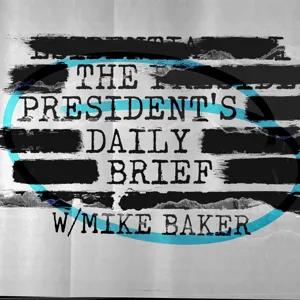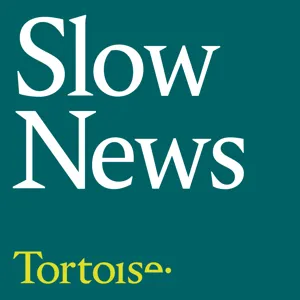Office Hours: Is Nuclear Power the Future?, Is the Brand Era Over?, and What Are Scott’s Reading Recs?

Explore "renewable_energy" with insightful episodes like "Office Hours: Is Nuclear Power the Future?, Is the Brand Era Over?, and What Are Scott’s Reading Recs?", "How Electric Utilities Will Handle Booming AI Datacenter Demand", "The Big Switch: Are Batteries the New Oil?", "Wind Power Is Taking Over A West Virginia Coal Town. Will The Residents Embrace It?" and "Oil prices and the Israel-Hamas war" from podcasts like ""The Prof G Pod with Scott Galloway", "Odd Lots", "Catalyst with Shayle Kann", "Consider This from NPR" and "The Indicator from Planet Money"" and more!


For years and years, utilities in the US haven't seen much growth in electricity demand. The economy is generally mature and has been able to grow even without needing much more electrical power. But all that's changing now and a big contributing factor is the boom in datacenter demand. It's particularly acute for AI datacenters, which need more power than traditional datacenters, and are growing like crazy ever since ChatGPT brought generative AI to everyone's collective consciousness. So how will utilities handle the sudden surge in load growth? On this episode, we speak with Brian Janous, co-founder and chief strategy officer at Cloverleaf Infrastructure. Brian spent 12 years at Microsoft, where he was the company's first ever energy-focused hire, so he has seen the rise of datacenter electricity consumption first hand, and how AI is kicking it up even further. He now works alongside utilities to figure out how they'll meet this growing demand. We talk about how there's likely to be more gas plants being built, how datacenters and utilities can get more energy out of existing infrastructure, the politics of AI datacenters, and what this all means for the net-zero commitments of major tech companies.
See omnystudio.com/listener for privacy information.




Radical libertarian economist, Javier Milei, has won Argentina’s presidential elections, investors are shaking up the venture capital market by raising money to buy out start-ups, and Bangladesh is struggling to keep the lights on after going all-in on liquefied natural gas.
Mentioned in this podcast:
Radical libertarian Javier Milei elected president of Argentina
Investors shake up VC market by raising money to buy out start-ups
Will Bangladesh come to regret its dash for gas?
Altman appears at OpenAI offices as pressure grows to reinstate him
The FT News Briefing is produced by Fiona Symon, Sonja Hutson, Kasia Broussalian and Marc Filippino. Additional help by Sam Giovinco, Josh Gabert-Doyon, Peter Barber, Michael Lello, David da Silva and Gavin Kallmann. Our engineer is Monica Lopez. Topher Forhecz is the FT’s executive producer. The FT’s global head of audio is Cheryl Brumley. The show’s theme song is by Metaphor Music.
Read a transcript of this episode on FT.com
Hosted on Acast. See acast.com/privacy for more information.

In October two US oil and gas giants announced massive deals: Chevron bought Hess, and ExxonMobil acquired Pioneer Natural Resources. These deals expand each company’s operations and secure their access to more oil for decades to come. But recent forecasts say global demand for fossil fuels will soon reach its peak. The FT’s Myles McCormick looks at why these companies are betting oil demand will stick around and whether that bet will pay off.
Clips from Yahoo Finance, Reuters, CNBC, Bloomberg
- - - - - - - - - - - - - - - - - - - - - - - - - -
For further reading:
Oil megadeals usher in an age of energy uncertainty
Dealmakers see Chevron-Hess tie-up as the start of oil ‘arms race’
The race to be last man standing in Big Oil
‘Jewel in the crown’: Chevron follows Exxon to Guyana’s oil riches
- - - - - - - - - - - - - - - - - - - - - - - - - -
On X, follow Myles McCormick (@mylesmccormick_) and Michela Tindera (@mtindera07), or follow Michela on LinkedIn for updates about the show and more.
Read a transcript of this episode on FT.com
Hosted on Acast. See acast.com/privacy for more information.



Security measures at Wimbledon have been ramped up to stop the environmental activist group Just Stop Oil from disrupting play. Meanwhile, controversial new police powers came into effect this week in England and Wales, aimed at curbing their protest methods. The group wants the government to halt new fossil fuel licensing and production, but its tactics have faced criticism. Who exactly are they and who funds them?
This podcast was brought to you thanks to the support of readers of The Times and The Sunday Times. Subscribe today: thetimes.co.uk/storiesofourtimes.
Guest: Adam Vaughan, Environment Editor, The Times.
Host: Manveen Rana.
Clips: Sky News, Sky Sports, BBC Radio 5 Live, Daily Mail. The Telegraph, Al Jazeera, Just Stop Oil, TalkTV, Times Radio.
Hosted on Acast. See acast.com/privacy for more information.

South Africa was once a symbol of hope. Now the country experiences regular blackouts. This is the story of how the lights went out in Mandela’s country – and how criminal gangs and flawed political leadership are holding back the world’s efforts to deal with climate change.
Tortoise is a newsroom devoted to slow journalism.
For early access and ad-free listening subscribe to Tortoise+ on Apple Podcasts or join Tortoise for £60 a year.
As a member you’ll also get our newsletters and tickets to live events. Just go to tortoisemedia.com/slowdown.
If you’d like to further support slow journalism and help us build a different kind of newsroom, do consider donating to Tortoise at tortoisemedia.com/support-us. Your contributions allow us to investigate, campaign and explore, and to build a newsroom that is responsible and sustainable.
Hosted on Acast. See acast.com/privacy for more information.

Bloomberg Daybreak Weekend with John Tucker takes a look at some of the stories we'll be tracking for you in the coming week including the coming reports on inflation and also the Fed minutes, which European stocks deserve a close look right now, China's ambitious solar industry, and here come the annual IMF and World Bank meetings.
See omnystudio.com/listener for privacy information.


Hosted on Acast. See acast.com/privacy for more information.


With all the shenanigans in Westminster this week you could be forgiven for failing to register we had a Spring Statement at all – let alone clocked its finer points.
Editor Simon Lambert, assistant editor Lee Boyce and host Georgie Frost fill you in on what you may have missed.
It includes forecasts from the Office for Budgetary Responsibility on the UK economy, along with income growth, interest rates, the pound and house prices.
We also have the true scale of the tax burden on families and businesses, with the overall tax take equivalent to 34.6% of Britain's economy, a level not seen since Harold Wilson was Prime Minister.
Income tax receipts will rise nearly £54billion in the next five years, with steep rises forecast for National Insurance, VAT and Corporation Tax.
A hike in probate 'fees' was waved through without a vote or debate in parliament by classifying it as a fee not a tax – but the ONS is now calling it a tax.
The OBR also reveals that two flagship savings schemes have not been anywhere near as popular as planned, while boilers are out – as are feed-in tariffs from solar panels.
Enjoy.

Hosted on Acast. See acast.com/privacy for more information.
Stay up to date
For any inquiries, please email us at hello@podcastworld.io